Search
Remove Ads
Advertisement
Summary 
Loading AI-generated summary based on World History Encyclopedia articles ...
Search Results
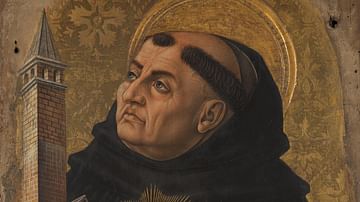
Definition
Thomas Aquinas
Saint Thomas Aquinas (l. 1225-1274, also known as the "Ox of Sicily" and the "Angelic Doctor") was a Dominican friar, mystic, theologian, and philosopher, all at once. Although he lived a relatively short life, dying at age 49, Thomas occupied...

Definition
Four Noble Truths
The Four Noble Truths are the foundational tenets of Buddhism, which spark awareness of suffering as the nature of existence, its cause, and how to live without it. The truths are understood as the realization which led to the enlightenment...
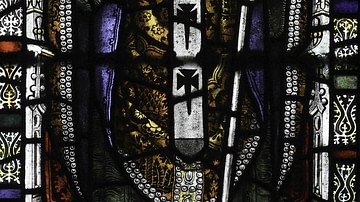
Definition
Thomas Becket
Thomas Becket (aka Thomas á Becket) was chancellor to Henry II of England (r. 1154-1189) and then archbishop of Canterbury (1162 to 1170). Thomas repeatedly clashed with his sovereign over the relationship between the Crown and Church, particularly...
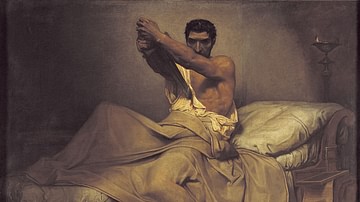
Article
The Ancient Concept of a Noble Death
The act of voluntary death was never condemned in antiquity. In fact, The English word "suicide" comes from the Latin for "self-slaying." The reason for a voluntary death had to be one that was honorable and necessary to remove any element...

Article
Ten Noble and Notorious Women of Ancient Greece
Women in ancient Greece, outside of Sparta, had almost no rights and no political or legal power. Even so, some women broke through the social and cultural restrictions to make their mark on history. All of the women did so at great personal...
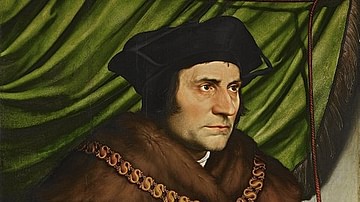
Definition
Sir Thomas More
Sir Thomas More (1478-1535 CE) was a lawyer, scholar, statesman, and Lord Chancellor to Henry VIII of England (r. 1509-1547 CE) who was executed in July 1535 CE for his refusal to endorse Henry's break of the Church in England from the Catholic...
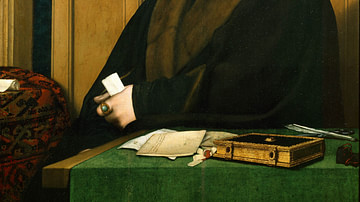
Definition
Thomas Cromwell
Thomas Cromwell (l. c. 1485-1540 CE) served as chief minister to Henry VIII of England (r. 1509-1547 CE) from 1532 to 1540 CE. With his king and the Archbishop of Canterbury Thomas Cranmer (in office 1533-55 CE), Cromwell masterminded the...
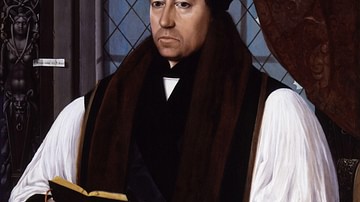
Definition
Thomas Cranmer
Thomas Cranmer served as the first Protestant Archbishop of Canterbury from 1533 to 1555 and was one of the prime architects of the English Reformation during the reigns of Henry VIII of England (r. 1509-1547) and Edward VI of England (r...
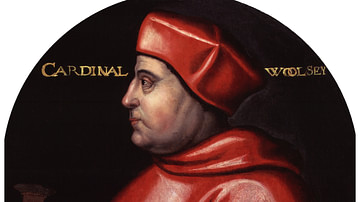
Definition
Thomas Wolsey
Thomas Wolsey, Cardinal Archbishop of York (l. c. 1473-1530 CE) served as Lord Chancellor to Henry VIII of England (r. 1509-1547 CE) from around 1513 CE to 1529 CE. Wolsey rose to become the most powerful man in England after the king, he...

Definition
Thomas Paine
Thomas Paine (1737-1809) was an Anglo-American Enlightenment thinker whose radical ideas were taken up by revolutionaries in both the American Revolution (1765-1783) and the French Revolution (1789-1799). A Founding Father through his influence...